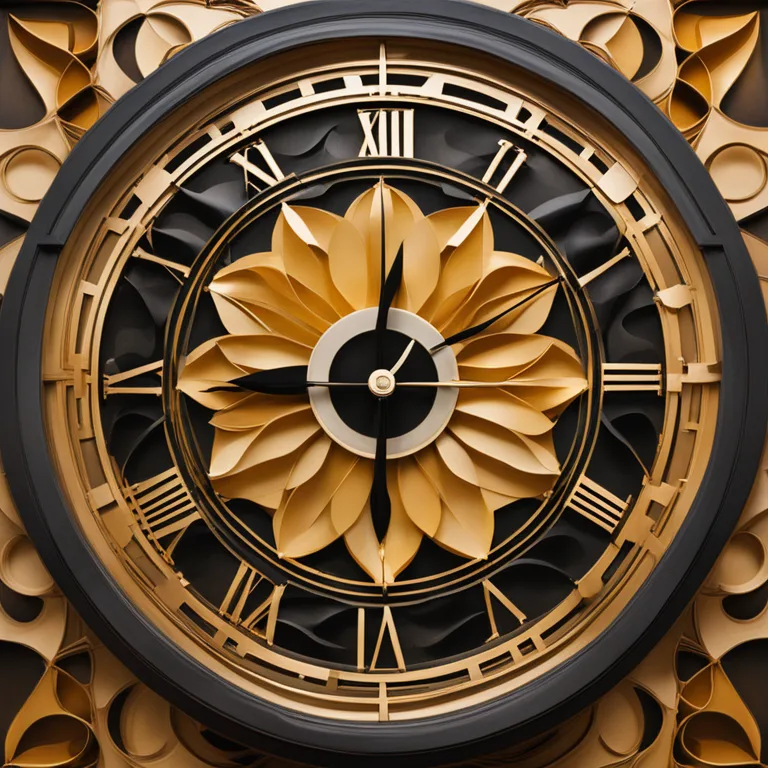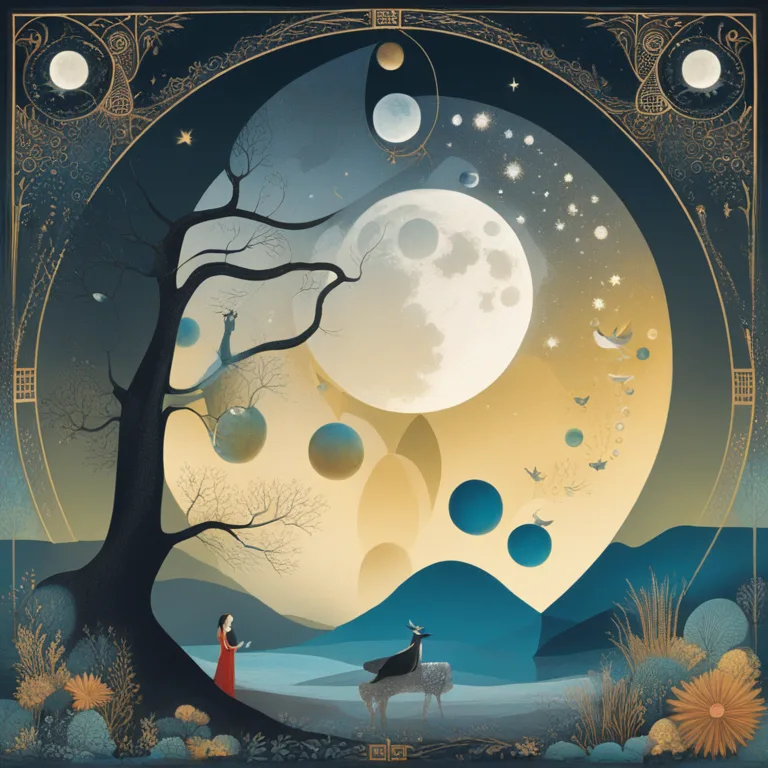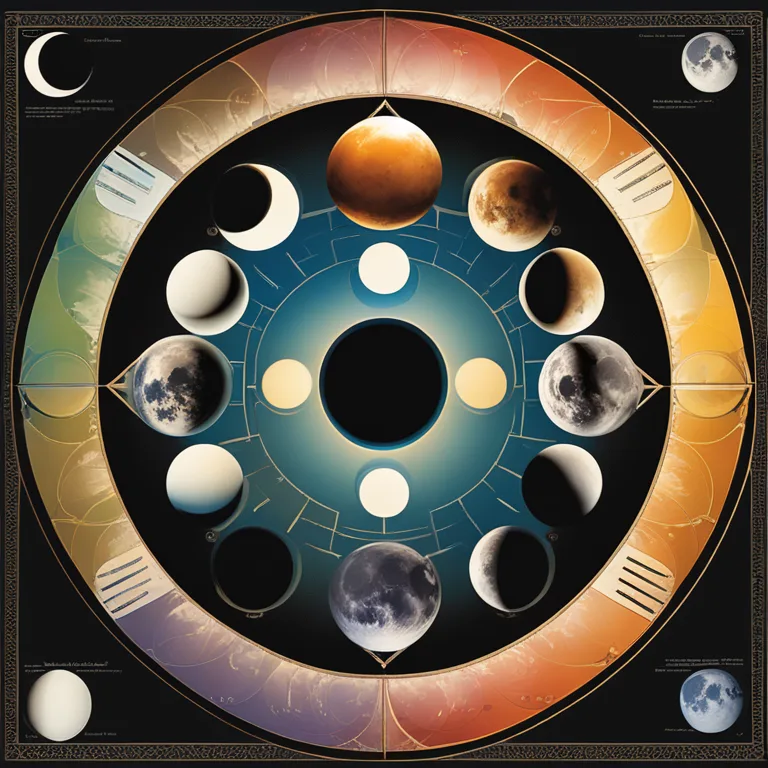
Biorhythms and Lunar Cycles: Body and Cosmic Harmony
Discover the intriguing connection between our body’s biorhythms and the distinct phases of the moon in this insightful look at cosmic influence on well-being.
article by Adrian Wallace
The Essence of Biorhythms
Organic clocks tick within us, orchestrating the symphony of biorhythms that affect our physical, emotional, and intellectual well-being. These inherent cycles ebb and flow, influencing various aspects of life, from alertness to recuperation. Rooted in the science of chronobiology, biorhythms are thought to regulate the myriad functions within the human body, much like a metronome sets the tempo for a musician.

Lunar Influences on Our Lives
Since ancient times, the moon's phases have been believed to exert a potent force over the natural world, including human behavior and health. Modern interpretations continue to ponder over the moon's role in our lives, suggesting that its gravitational pull might extend beyond the tides to sway our very biorhythms, knitting an intricate tapestry of influence that resonates with our circadian rhythms and life patterns.

Phases of the Moon and Biorhythms
The moon waxes and wanes through a cycle of approximately 29.5 days, transitioning from new moon to full moon and back. Each phase—new moon, waxing crescent, first quarter, waxing gibbous, full moon, waning gibbous, third quarter, and waning crescent—has been associated with subtle energetic shifts perceived in our bodies. For instance, some traditions correlate the full moon with heightened emotions and energy levels due to its increased luminosity and cultural significance.

Scientific Scrutiny and Cultural Beliefs
While the dialogue between moon phases and biorhythms captivates many, it's essential to approach such connections with scientific scrutiny. Research in chronobiology, though still evolving, encourages an open mind, balanced with rigorous investigation. Cultural beliefs often provide a starting point for hypothesis generation, allowing science to explore the fabric of folklore with empirical threads.

Implementing Lunar Wisdom
Whether or not one is inclined to align activities with the lunar calendar, it can't be denied that the practice offers a rhythmical structure that echoes the principles of self-care and mindfulness. By observing the moon's rhythmic dance, individuals may find a harmonious cadence to incorporate into their routines—a nod to both ancestral knowledge and potential biological synchronicity.
Enhancing Well-being through Awareness
The pursuit of well-being benefits from an awareness of both internal and external rhythms. By recognizing the potential intersections between biorhythms and moon phases, individuals may learn to navigate life's tumultuous waves with a more profound sense of equilibrium. This cosmic perspective invites us to consider our place in a larger biological and celestial ballet, one that has enthralled our species since the dawn of time.
Final Thoughts on Biorhythms and Moon Phases
Whether as a metaphor for balance or as a literal force of nature, the conversation between biorhythms and lunar cycles remains a fascinating domain. As we forge ahead, the beauty of this cosmic interplay invites us to reflect, respect, and perhaps realign with the timeless tides that sway the living world around us and the pulsing life within.
Published: 12/28/2023
Modified: 12/28/2023
More predictions
Come back here soon to learn more about yourself and your future


Unlocking Biorhythm Calculations
Learn the ins and outs of measuring your biorhythms to align with your natural energy cycles for enhanced well-being and decision-making.


The Practical Uses of Biorhythms in Our Lives
Discover how biorhythms can be applied to improve well-being and achieve a better understanding of personal cycles in health, decision-making, and relationships.


Biorhythm: The Significance of Compatibility
Discover the significance of biorhythm compatibility in relationships and how syncing life cycles can impact partnership dynamics.